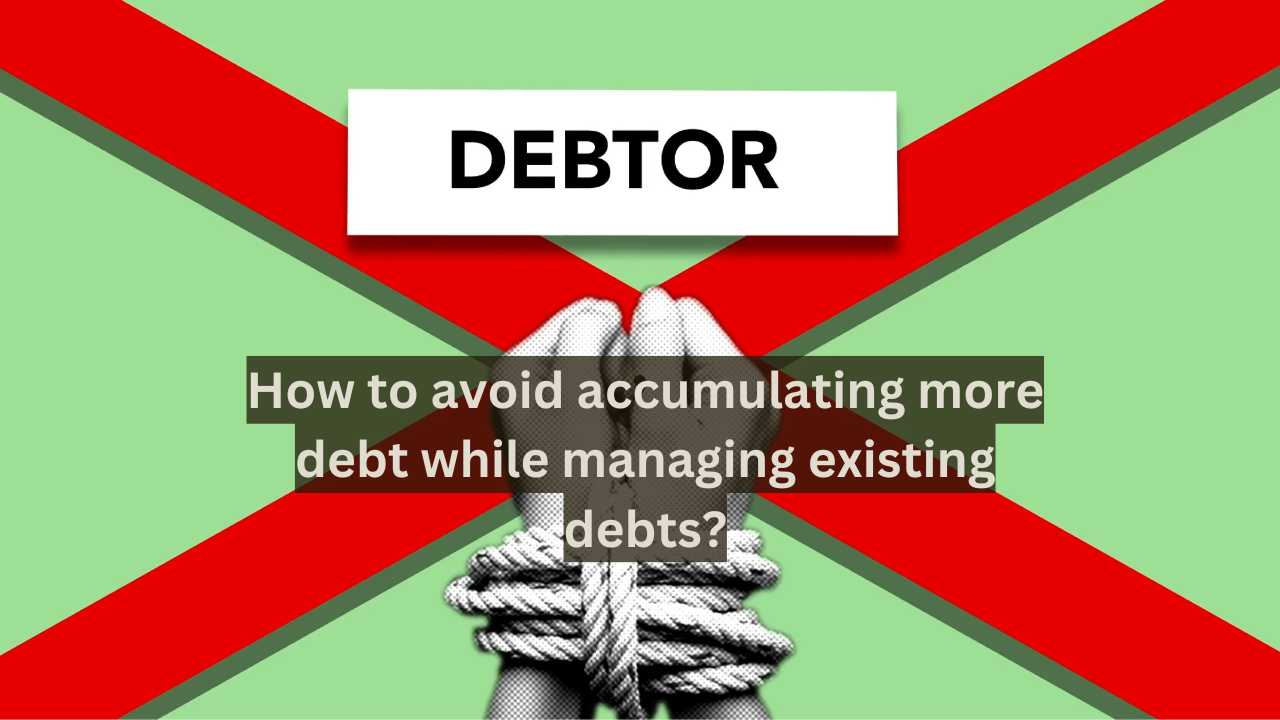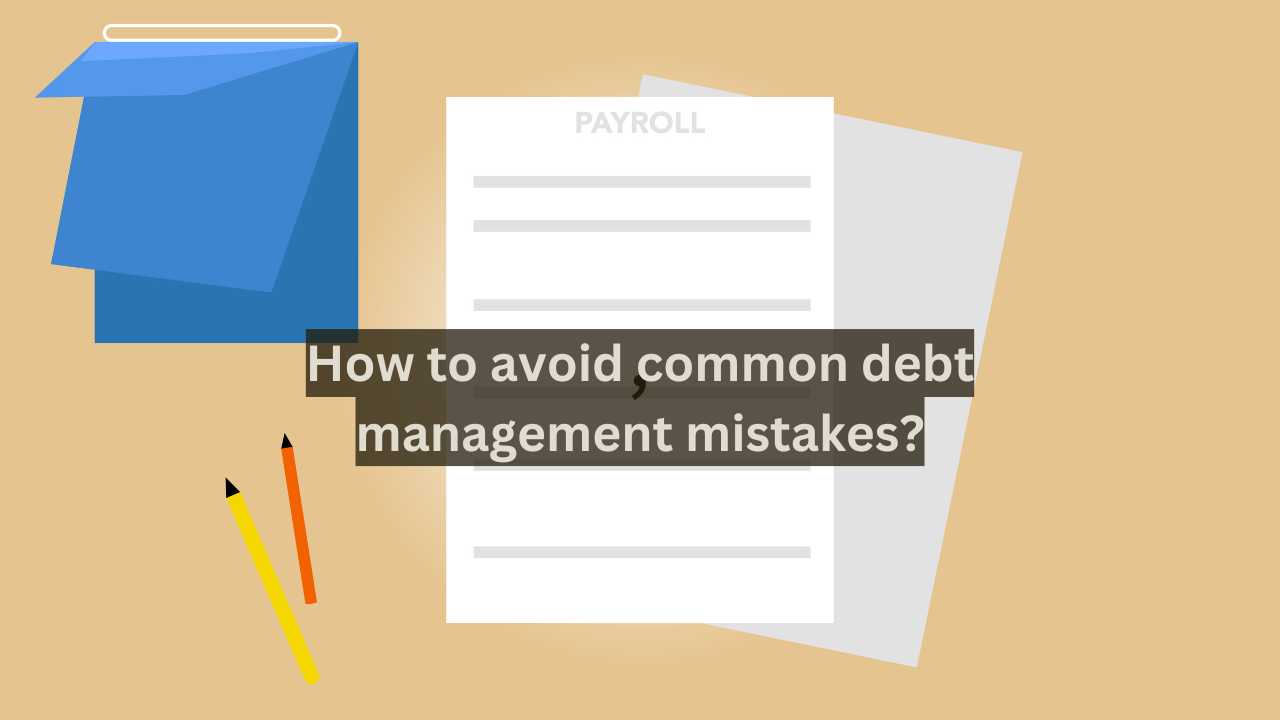Managing existing debt is a significant step toward financial stability, but it’s equally important to avoid accumulating more debt during this process. Here’s a guide to help you stay on track with your debt management plan and prevent new debt from piling up.
1. Create and Stick to a Budget
A well-planned budget is essential for controlling your spending and ensuring that you’re not taking on additional debt.
- Track your income and expenses: Start by recording all sources of income and listing your expenses. Use this information to create a budget that allocates funds to essential needs, debt repayment, and savings.
- Set spending limits: Establish clear limits for discretionary spending categories, such as dining out and entertainment. Adhering to these limits helps prevent overspending and reliance on credit cards.
By following a budget, you ensure that you’re living within your means and avoid the temptation to use credit cards for non-essential purchases.
2. Use Cash or Debit Instead of Credit Cards
Relying on cash or debit cards for purchases helps you avoid accumulating new debt.
- Cash for discretionary spending: For everyday expenses like groceries and entertainment, use cash to limit your spending to what you have on hand.
- Debit cards for transactions: Use a debit card linked to your checking account for transactions to prevent overspending. Debit cards draw directly from your bank account, reducing the risk of accumulating debt.
By using cash or debit cards, you eliminate the possibility of adding new charges to your credit cards, helping you stay within your budget.
3. Avoid Impulse Purchases
Impulse buying can quickly derail your debt management efforts. Implement strategies to control impulse spending.
- Implement a waiting period: Before making a non-essential purchase, enforce a 24- to 48-hour waiting period. This gives you time to evaluate whether the purchase is necessary.
- Avoid shopping triggers: Identify and avoid triggers that lead to impulse purchases, such as frequent visits to online shopping sites or window shopping.
Controlling impulse spending helps you avoid unnecessary expenses and keeps your focus on managing existing debt.
4. Build an Emergency Fund
An emergency fund acts as a financial buffer, preventing you from using credit cards or taking on new debt when unexpected expenses arise.
- Start with a small goal: Begin by saving a small amount, such as $500 to $1,000, and gradually build up to a larger fund of three to six months’ worth of expenses.
- Automate savings: Set up automatic transfers to a separate savings account to ensure consistent contributions to your emergency fund.
Having an emergency fund reduces the need to rely on credit cards for unexpected costs, helping you avoid accumulating additional debt.
5. Review and Adjust Your Budget Regularly
Regularly reviewing your budget helps you stay on track and make necessary adjustments to avoid new debt.
- Monthly reviews: At the end of each month, review your budget and spending to assess your financial situation. Identify areas where you can cut back or adjust spending.
- Adjust for changes: If your income or expenses change, update your budget accordingly to ensure it remains effective.
Regularly reviewing and adjusting your budget ensures you stay within your financial limits and avoid the need for additional credit.
6. Negotiate with Creditors
If you’re struggling to manage existing debt, negotiating with your creditors can help improve your financial situation and prevent new debt.
- Request lower interest rates: Contact your creditors to request lower interest rates on your credit cards or loans. Lower rates can reduce your monthly payments and total interest charges.
- Explore payment plans: Discuss alternative payment plans with your creditors if you’re having difficulty meeting your current payment obligations. Some creditors may offer modified payment arrangements or temporary relief.
Negotiating with creditors can provide financial relief and help you avoid additional debt while managing your existing obligations.
7. Limit New Credit Applications
Applying for new credit accounts can lead to additional debt and negatively impact your credit score. Be cautious when considering new credit applications.
- Avoid unnecessary credit applications: Only apply for new credit when absolutely necessary, and avoid frequent applications that can lower your credit score.
- Understand the terms: Before applying for new credit, thoroughly review the terms, including interest rates, fees, and repayment conditions.
Limiting new credit applications helps you focus on managing existing debt and prevents the accumulation of additional financial obligations.
8. Set Financial Goals and Track Progress
Setting financial goals and tracking your progress helps you stay motivated and focused on managing existing debt without accumulating more.
- Set clear goals: Define specific, measurable financial goals, such as paying off a certain amount of debt within a set timeframe. Break these goals into smaller milestones for added motivation.
- Track your progress: Regularly monitor your progress toward achieving your financial goals. Celebrate milestones to maintain motivation and adjust your plan as needed.
Setting and tracking financial goals ensures that you stay committed to managing your debt and avoiding new debt.
9. Seek Professional Financial Advice
If you’re struggling to manage existing debt or avoid new debt, consider seeking professional financial advice for additional support.
- Consult a financial advisor: A financial advisor can provide personalized advice on budgeting, debt management, and strategies to avoid new debt.
- Work with a credit counselor: Credit counselors can offer guidance on managing debt, creating a budget, and negotiating with creditors. Look for reputable nonprofit credit counseling agencies.
Professional financial advice can provide valuable insights and strategies to help you manage debt effectively and avoid accumulating more.
10. Maintain Good Financial Habits
Developing and maintaining good financial habits helps you manage existing debt and avoid new debt over the long term.
- Practice mindful spending: Be intentional with your spending decisions and prioritize needs over wants. Make thoughtful purchases that align with your budget and financial goals.
- Build financial literacy: Continuously educate yourself about personal finance, budgeting, and debt management. Stay informed about best practices and financial strategies.
Maintaining good financial habits ensures that you stay on track with your debt management plan and prevent the accumulation of additional debt.
Conclusion
Avoiding the accumulation of new debt while managing existing debt requires careful planning, disciplined spending, and effective budgeting. By implementing strategies such as using cash or debit, controlling impulse spending, building an emergency fund, and seeking professional advice, you can successfully manage your debt and prevent new financial burdens. Stay committed to your financial goals, and practice good financial habits to achieve long-term stability and financial health.
FAQ
1. How can I avoid overspending on credit cards?
Use cash or debit for discretionary purchases, set spending limits in your budget, and implement a waiting period before making non-essential purchases to prevent overspending.
2. What should I do if I need to use credit cards for emergencies?
If you must use credit cards for emergencies, prioritize paying off the balance as quickly as possible to minimize interest charges and avoid accumulating additional debt.
3. How can I build an emergency fund while managing debt?
Start with a small savings goal and automate regular contributions to a separate savings account. Gradually increase the fund as your financial situation improves.
4. What are some common triggers for impulse spending?
Common triggers include stress, boredom, exposure to advertising, and frequent shopping trips. Identifying and addressing these triggers can help you control impulse spending.
5. When should I seek professional financial advice?
Seek professional advice if you’re struggling to manage existing debt, avoid new debt, or if you need personalized guidance on budgeting and debt management strategies


